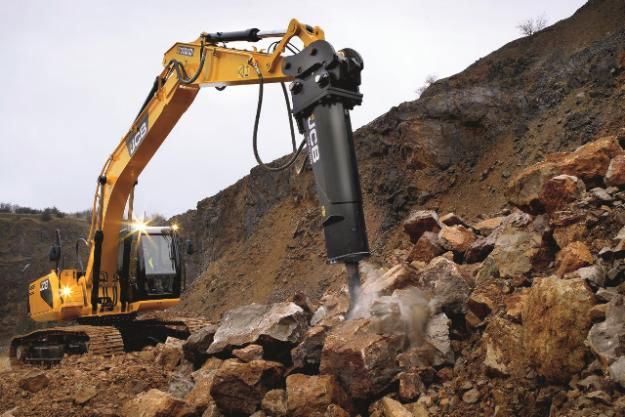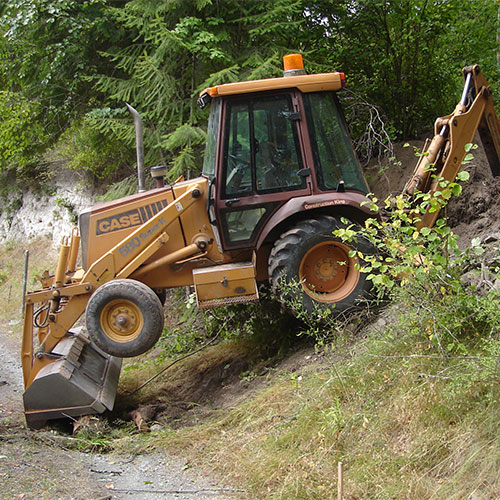Comprehensive Excavation Methods: Understanding the Basics for Success
In the realm of building and construction and civil design, the relevance of effective excavation strategies can not be overemphasized. The cautious preparation, precise execution, and thorough interest to information called for in excavation jobs demand a thorough technique that incorporates numerous fundamental facets. From preliminary dirt analysis to the execution of safety measures and normal progress surveillance, grasping these core elements is vital for achieving success in any excavation undertaking. Nevertheless, the real mastery lies not simply in understanding these principles but in effortlessly incorporating them to navigate the intricacies of excavation projects with finesse.
Comprehending Excavation Job Preparation

Effective excavation tasks are improved the foundation of meticulous and extensive planning. The preliminary stage of any kind of excavation project is the drawing board, where essential choices are made that can substantially influence the end result of the task. Throughout this stage, it is important to gather all relevant details concerning the website, consisting of topographical studies, soil make-up, and any kind of prospective risks that may exist. Comprehending the job timeline, scope, and spending plan restraints is vital for producing an extensive excavation strategy that guarantees the project's success.
One secret facet of excavation project preparation is the development of a thorough timeline that details the sequence of milestones, activities, and target dates. This timeline functions as a roadmap for the project group, allowing them to track progress and make needed adjustments to make sure the project remains on schedule. In addition, a well-defined budget plan that makes up all expenses, including tools rental, labor expenses, and products, is essential for preventing price overruns and delays. By thoroughly taking into consideration all these factors during the preparation phase, excavation tasks can be performed effectively and efficiently, leading to effective end results.
Dirt Evaluation and Website Analysis
Performing thorough dirt evaluation and website examination is an essential action in the prep work phase of any type of excavation project. Soil evaluation entails figuring out the structure, structure, and residential properties of the soil at the excavation site. This details is critical for recognizing the soil's bearing ability, wetness material, and possibility for erosion, which are crucial elements in figuring out the excavation methods and tools required for the job.
Site analysis goes past soil evaluation and incorporates a wider assessment of the total website conditions. This analysis consists of determining any kind of potential risks, such as below ground utilities, ecological worries, or unstable surface, that could impact the excavation process. By completely evaluating the website, project supervisors can develop reliable excavation techniques that focus on safety, performance, and environmental management.
Utilizing innovative technologies like ground-penetrating radar, dirt sampling, and drone studies can enhance the precision and efficiency of soil evaluation and site assessment. Spending time and resources in these preliminary steps can ultimately conserve time and avoid expensive hold-ups or difficulties during the excavation procedure.
Tools Selection and Usage
Reliable excavation projects depend greatly on tactical devices option and usage to make sure optimal performance and productivity. Choosing the best devices for the job is critical in optimizing efficiency and reducing downtime. Aspects such as the sort of soil, depth of excavation, and job scope play a considerable role in determining one of the most appropriate equipment for the task handy.

Along with selecting the proper equipment, proper use is key to project success. Operators must be trained to manage the devices safely and effectively - dump truck companies in ohio. Routine maintenance checks and timely repairs help prevent failures and make certain regular performance throughout the project
Safety Procedures and Rules Compliance
In the world of excavation projects, prioritizing precaution and conformity with regulations is critical to making sure a legitimately sound and safe and secure functional setting. Safety procedures encompass a series of methods, consisting of carrying out comprehensive site assessments, carrying out proper signs and obstacles, and offering adequate security training for all personnel included in the excavation process. Adherence to guidelines, such as look what i found OSHA demands in the United States, makes sure that the excavation project satisfies the needed requirements to secure workers, bystanders, and the surrounding environment.

Monitoring Progress and Adjusting Strategies
How can project managers effectively track the development of excavation projects and adapt their strategies accordingly to maximize results? Monitoring progression is vital for ensuring that useful source excavation tasks stay on track and meet deadlines. Task managers can use numerous tools and strategies to track development, such as daily report card, routine website assessments, and advanced monitoring technologies like drones and general practitioners tracking systems. By constantly checking the job's development, managers can recognize any type of prospective hold-ups or issues beforehand and take proactive measures to resolve them.

Verdict
To conclude, grasping the fundamentals of detailed excavation techniques is necessary for the success of any kind of task. By comprehending project planning, examining dirt and website problems, choosing proper tools, following safety and security regulations, and checking development, project managers can guarantee a smooth and effective excavation procedure. Implementing these strategies will certainly result in successful outcomes and decrease prospective risks or obstacles throughout the excavation task.
The first phase of any excavation job is the planning stage, where crucial decisions are made that can significantly affect the end result of the task. Understanding the task scope, timeline, and budget constraints is essential for creating a comprehensive excavation strategy that ensures the project's official statement success.
How can predict supervisors efficiently track the development of excavation jobs and adjust their methods appropriately to optimize end results? By carefully checking progress and being prepared to adapt approaches, project managers can improve the general success of excavation projects.
By recognizing job preparation, evaluating dirt and website conditions, selecting proper equipment, abiding with security regulations, and checking development, task supervisors can ensure a smooth and reliable excavation procedure.